The future of employment: new challenges for pending aspirations
On the occasion of the celebration of the 25th anniversary of the creation of the Open University of Catalonia (UOC), the authors take the opportunity to reflect on the recent evolution of the labour market in Spain and its labour relations, as well as its future challenges. A period that begins with a long phase of expansion of the Spanish economy and ends with the outbreak of the COVID-19 pandemic. In the middle, events with a relevant economic and labour effect such as (i) the relocation that has accompanied globalization, (ii) the migratory movements that have rendered us a host country, (iii) the violent impact that the Great Recession that began in 2008 and the pandemic of 2020, as well as (iv) the process of technological and digital transformation in which we are immersed. Despite this, the article does not have a vocation for the past and stops in the analysis on two great challenges. Job quality, a challenge that has been present in the last twenty-five years and that, far from being resolved, has become more urgent. And the digitization of employment, the great test of the Spanish economy and society that may be a turning point in our employment structure.
ODS

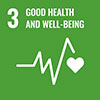
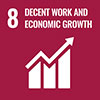
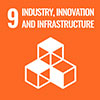
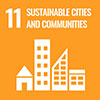
 Pilar Ficapal-Cusí
Pilar Ficapal-CusíAssociate Professor in the Business Organization Area (Humans resources, human and organizational behaviour) at the Economics and Business Studies at the Universitat Oberta de Catalunya (UOC). Researcher in the interdisciplinary research group on ICTs, i2TIC (https://blogs.uoc.edu/i2tic/equip/pilar-ficapal/) and academic director of the Master Degree in Human Resources Management at the UOC. Her research focuses on the analysis of work quality and occupational health, sustainable management, and the effects of digital transformation on individual and organizational behaviour.
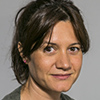 Elisabet Motellón Corral
Elisabet Motellón CorralDirector of the Labour and Occupational Relations degree at the UOC. Her research activity is focused on the empirical analysis of the labour economy combined with elements of regional economics. She has published, in this field, several scientific publications in specialist magazines. Member of the research group Análisis Cuantitativo Regional (AQR).



